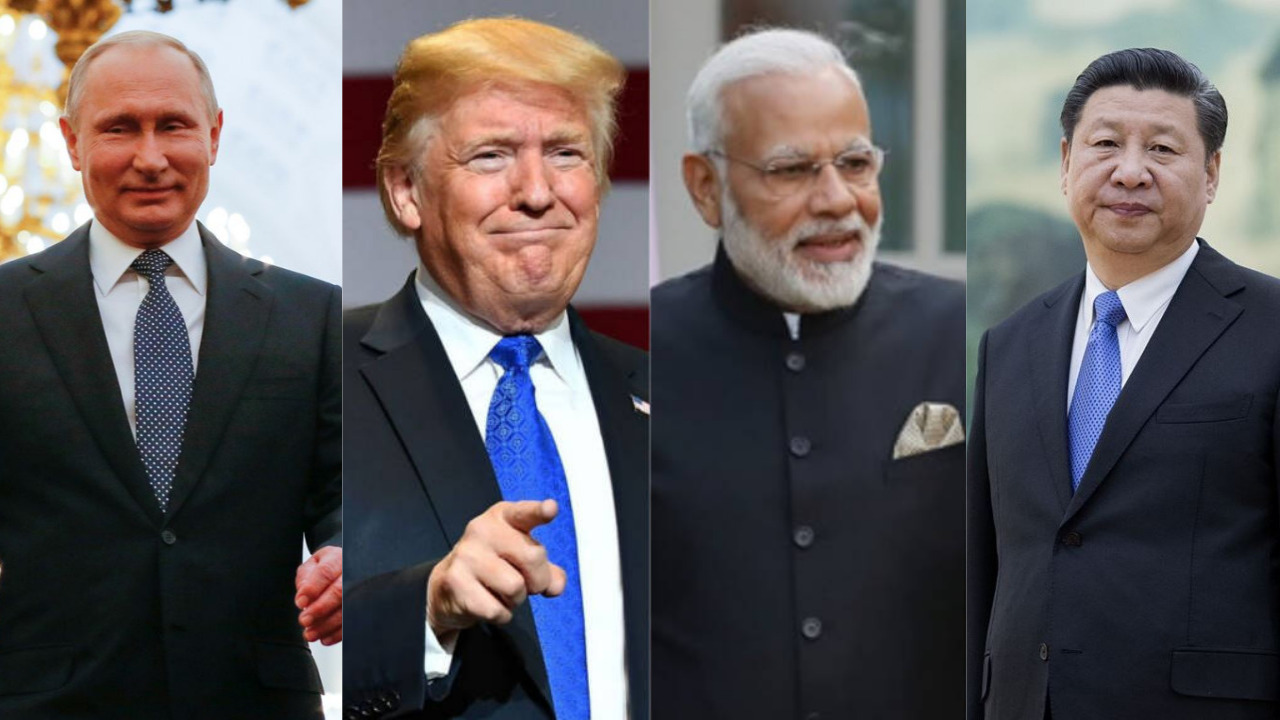From Superpower to One Among Many?
For decades, the United States stood at the center of global power. But in 2025, the unipolar world it once dominated is shifting beneath its feet. According to the IMF’s July 2025 report, the U.S. now accounts for just 15.5% of global GDP (PPP terms)—down sharply from 24% in 2000. Meanwhile, the expanded BRICS bloc (Brazil, Russia, India, China, South Africa, plus new members like Iran and the UAE) is rising fast, now representing over 26% of global output and nearly half the world’s population.

And the changes aren’t just economic. They’re philosophical. The BRICS alliance is pushing for alternatives to Western-led institutions like the IMF and World Bank, and even exploring common currency and gold-backed systems to reduce dependency on the U.S. dollar.
The world is no longer asking the U.S. for permission—it’s forming new systems without it.
Sanctions and Tariffs: Losing Their Bite
If there’s one lesson from recent years, it’s that economic warfare isn’t what it used to be.
Take Russia, for example. Despite unprecedented Western sanctions, the Russian economy grew 3.6% in 2025 (IMF mid-year report), driven by booming energy exports to China and India—up 40% and 55%, respectively, since 2022. China, with its industrial dominance, and India, with its booming tech sector, are proving too large to isolate.
At the same time, the U.S. dollar’s global dominance is eroding. According to the IMF, it now accounts for just 58% of foreign reserves, its lowest share in over two decades. Russia and China are already settling 25% of their trade in yuan and rubles, bypassing Western systems entirely.
In this new reality, sanctions don’t isolate—they redirect.
Trump’s Gamble: Joining the Table or Flipping It?
In February 2025, Donald Trump surprised the world by floating a potential ceasefire in Ukraine—one that involved recognizing four Russian-occupied oblasts. Critics called it appeasement. But others saw a deeper strategy: de-escalation through pragmatism, not ideology.

Now, with Trump allegedly involving real estate developer Steven Witkoff in backchannel talks with Vladimir Putin, the line between diplomacy and deal-making is blurring. Witkoff has no foreign policy experience, but Trump doesn’t seem to mind.
“He gets things done,” a Trump aide told US Weekly in July.
Trump’s approach may look erratic, but it fits a broader theory: Don’t fight the new world order—profit from it. If sanctions are failing, and BRICS is rising, Trump may be positioning the U.S. as a negotiator rather than an enforcer.
Cooperation or Confrontation?
This puts the U.S. at a crossroads. Does it double down on confrontation, raising tariffs (as Trump proposed in March: 60-100% on BRICS imports), risking inflation and global backlash? Or does it pivot toward cooperation, reimagining its role in a world it no longer dominates?
So far, signs point both ways. Military spending remains high—3.5% of GDP in 2025, according to SIPRI—with allies like Japan and Germany expanding their defense budgets. But the BRICS summit in Rio (July 2025) also revealed internal cracks: China and Russia skipped it, hinting at rivalries the U.S. might exploit through selective engagement.
The smart strategy? Stay influential not by commanding the system—but by being indispensable to it.
Warning: BRICS Isn’t a Perfect Bloc
While BRICS presents a united front, it’s far from unified. China and India clash over borders and influence. Brazil and South Africa worry about authoritarian drift. Iran’s inclusion adds geopolitical tension.

The proposed BRICS currency remains speculative, and intra-BRICS trade, while rising, is still smaller than trade with the West.
In other words, the U.S. still has leverage—but not forever.
By selectively engaging with India and Brazil or partnering with South Africa and the UAE on climate and trade, the U.S. could undermine BRICS cohesion from within, rather than trying to break it from the outside.
The Real Question: Can America Adapt?
This isn’t about left vs. right. It’s about power vs. partnership. The world’s center of gravity is moving—east, south, and somewhere new. The U.S. can either learn to move with it, or risk becoming a legacy power stuck in past glories.
Trump’s chaotic style may not offer the consistency allies crave, but it does point to one truth: the old playbook no longer works. Whether the next U.S. president is Trump, Biden, or someone else, the future belongs to leaders who can play the new game—not just remember how they won the last one.
Final Thought
We are living through the collapse of a myth: that global power must always flow through Washington. BRICS isn’t perfect—but it’s real. And as the multipolar world matures, America’s influence will depend not on dominance, but on adaptability.
